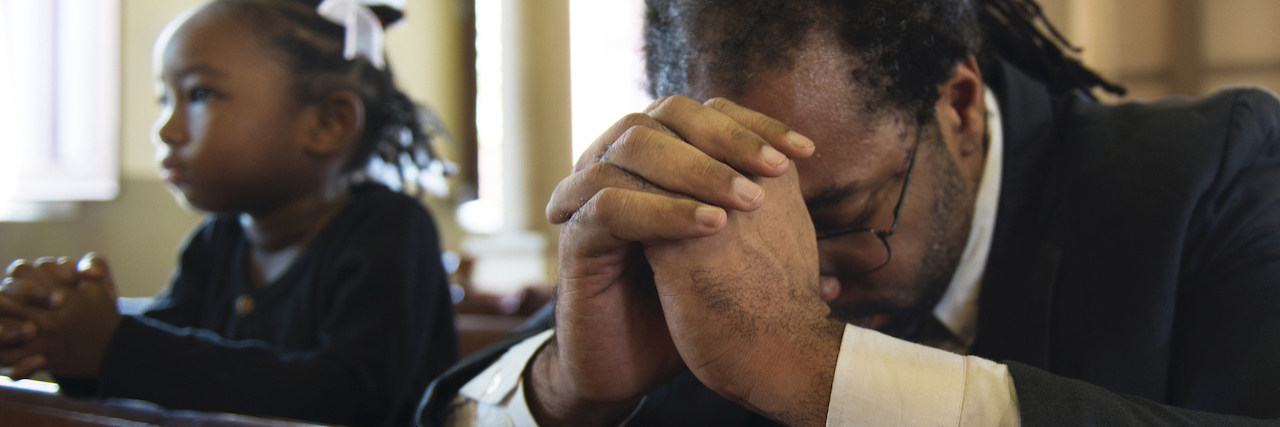New Study Suggests Religion Can Help Prevent Mental Health-Related Deaths Among Health Care Workers
Editor's Note
If you want to have a conversation with people who “get it,” join The Mighty’s Chat Space group.
A new study published Wednesday in the journal JAMA Psychiatry suggested that attending regular religious activities may help prevent mental health-related deaths, including suicide and drug and alcohol overdoses, among health care workers.
Researchers associated with the Harvard T.H. Chan School of Public Health investigated how attending regular religious services impacted health care workers. Using previously collected data, researchers compared how often health care professionals who died by suicide, alcohol poisoning or a drug overdose attended religious services. They found that females who attended weekly services were 68% less likely to die from these causes and males 33% less likely to die.
Even though researchers looked at data from over 66,000 female registered nurses and 43,000 male health care professionals, the sample included only 75 women and 306 men who died. Despite the sample size limitations, the researchers hope their findings can support health care workers on the front lines of the COVID-19 pandemic.
Researchers noted that their findings track with previous research that shows a sense of belonging, community and social connectedness help protect people’s mental health. This applies not just to health care workers, but to everyone. Building a strong social support system helps buffer the stress of everyday life and ideally provides a safe place to land for those facing mental health difficulties. Many people find support through their religious affiliations.
Health care workers face significant stressors, including fear of getting sick or passing the illness onto loved ones, a lack of protective equipment in overwhelmed hospitals, and even getting furloughed and losing their income. Research among health care workers points to an increase in anxiety, depression and post-traumatic stress disorder (PTSD), especially for those who have direct COVID-19 patient contact. The researchers highlighted the importance of resources like religious services to provide these workers community and support.
“We need to look for important community resources,” the study’s authors said in a statement. “We need to think what might be done to extend help to those at risk for despair.”
It’s also important to note that religion can be complicated for many people who struggle with their mental health. Faith-based participation can be a supportive environment, but some communities preach that suicide is a sin or shame those who disclose a mental health condition or addiction. This can discourage those who are struggling from reaching out for support. However, as Juliette Virzi, The Mighty’s mental health editor, wrote:
Too often suicidal Christians are met with damaging statements like, ‘you need to pray harder’ or ‘God never gives you more than you can handle.’ … For those who are struggling today, I want to remind you the Lord is near, even in times you may feel alone. According to scripture, ‘The Lord is close to the brokenhearted and saves those who are crushed in spirit” (Psalm 34:18).
Header image via Rawpixel/Getty Images

